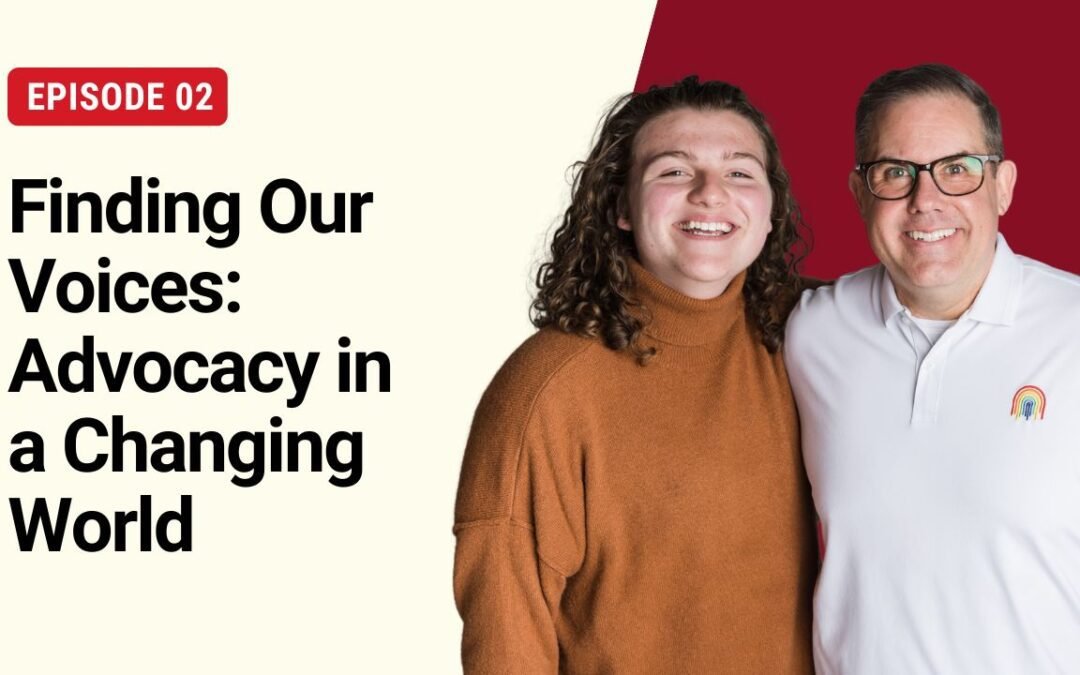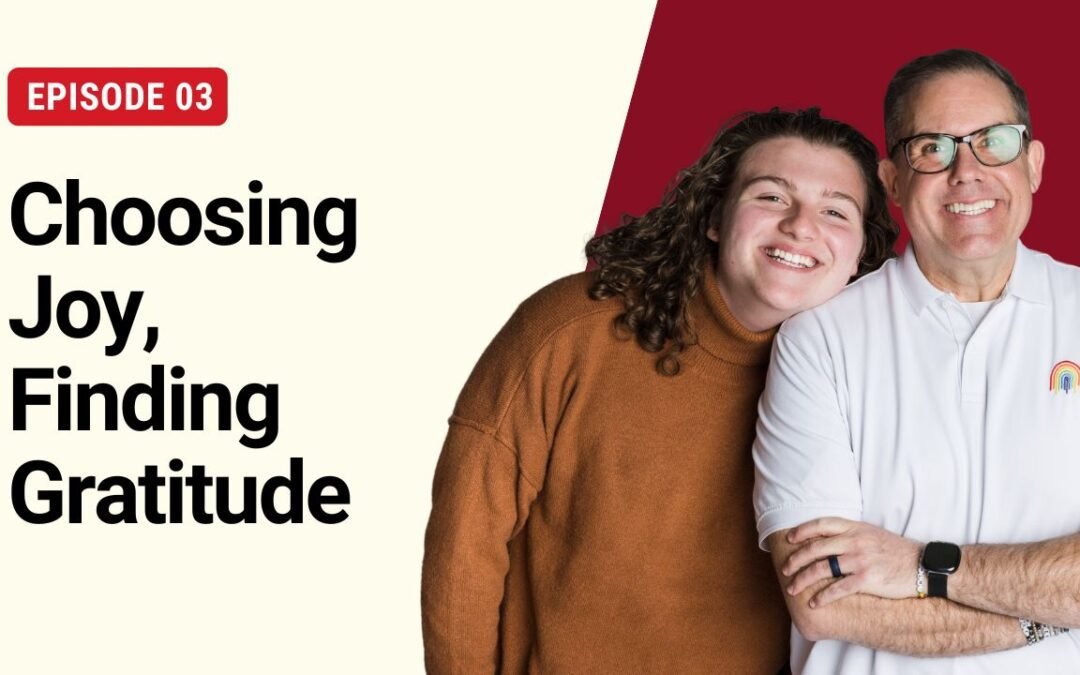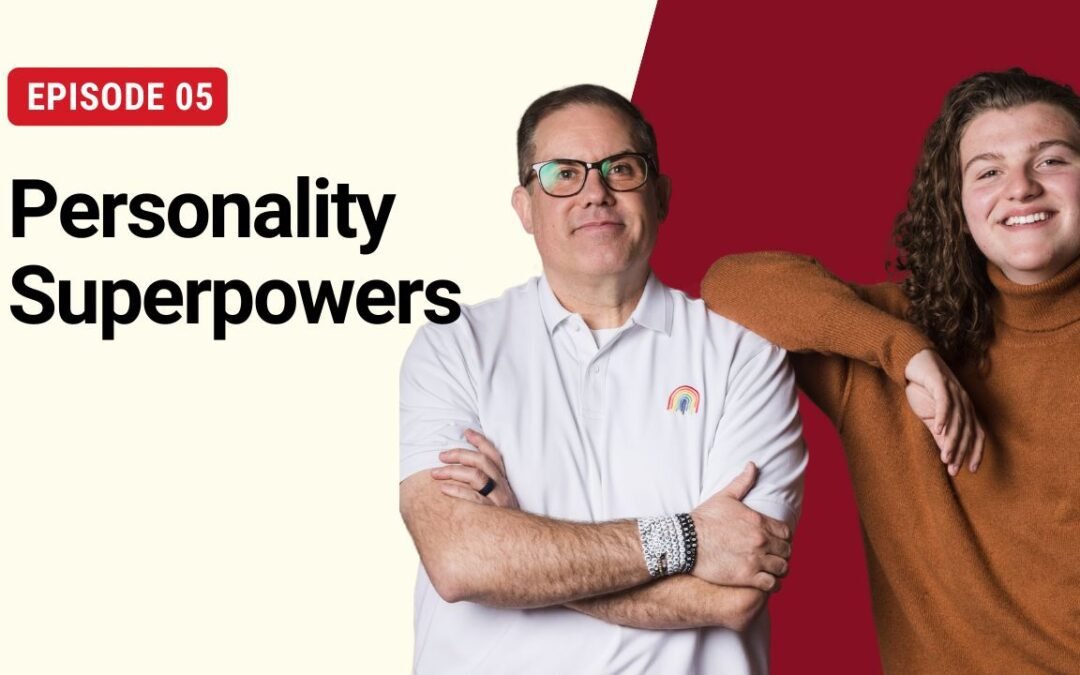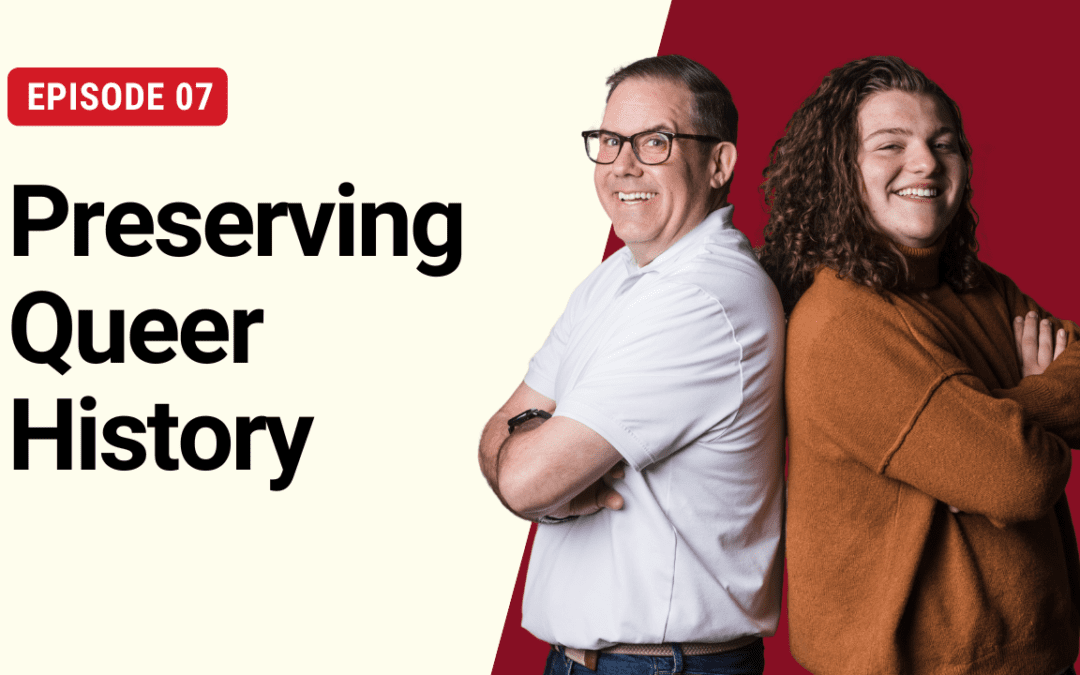Episode 2
Faith Across the Rainbow
S02 - Episode 02
November 09, 2024
32 mins & 49 secs
Speakers
Chris McLaughlin
Soren Peterson
Greg Bridges-Music
About
Join our guest, chaplain and clinician, Greg Bridges-Music, as he talks with Chris and Soren about navigating the intricate relationship between spirituality and LGBTQ+ identities. This thoughtful dialogue addresses common conflicts and reconciliations experienced within spiritual communities, offering a compassionate perspective on maintaining faith while affirming one’s true self.
#podcast #mentalhealth #youthmentalhealth #lgbtq #youthlgbtq #youth #inspiration #faith #lgbtqfaith
https://www.youtube.com/@InspiredInsightsPodcast
inspiredinsights@inspiredcg.com
*Please note that this episode contains sensitive behavioral health topics such as suicide and substance use. If you are experiencing a behavioral health crisis, please contact the 988 Suicide & Crisis Lifeline by calling 988 or visiting www.988lifeline.org.
**This podcast is for information and entertainment purposes only and should not be considered health advice. This podcast is not intended to replace professional medical advice.
Transcript
Chris:
The Inspired Insights podcast is for informational and entertainment purposes only and should not be considered health advice. This podcast is not intended to replace professional medical advice.
Soren:
Please note that this podcast may contain discussions on sensitive topics such as mental illness, suicide, and substance use. If you are experiencing a behavioral health crisis or need support, please contact the 988 Suicide and Crisis Lifeline by calling 988 or visiting www.988lifeline.org.
Chris:
My friends, welcome back to another episode of the Inspired Insights podcast. Here we are around the fire pit for another fire pitch side chat. How are you, Soren?
Soren:
I’m well. Very excited to be here.
Chris:
Yeah.
We are so excited to welcome a good friend and mentor and colleague of mine, Greg Bridges Music. Welcome, Greg.
Greg:
Thank you very much, Chris. Hello. Hello.
Yeah, Greg Bridges Music. I have been an ordained clergyman since, oh golly, since 1986.
Chris:
Oh, that’s even longer than I thought.
Greg:
Yeah, 1986, social worker, therapist, currently a chaplain. And, you know, we were saying leading up to this that I find this field so interesting because as a chaplain, and I work in mental health work, currently, and I’m doing a doctoral ministry, and the doctoral ministry that I’m doing is on how queer men got to a healthy space in their life when there have been so many hurdles for us to jump, right? And what that is.
And so spirituality and good therapy work or science and faith are not odds for me. They both strengthen and help one another when used properly. We’re talking a lot about mindfulness and the utilization of spirituality.
And in the religious world and queer spirituality, they’re talking a whole lot about trauma work and how that’s helpful.
Chris:
I love your point around where spirituality and theology crosses with your clinical background, your clinical training. And I’m wondering if you can say a little bit more around how you apply elements of both those pieces that are so important to who you are and your identity, your spirituality and your clinical training.
Greg:
Okay.
So the regular spiel that I do with patients in high crisis in a hospital week after week, let’s say if it’s some crisis, right? And whenever we hit crisis, trauma, huge changes in our life, COVID is example, divorce, death is another one. Any, any illness, whether that’s mental health, emotional, also physical, because I used to be chaplain for the emergency department, intensive care in the cardiac unit.
So somebody wakes up having their chest ripped open. They’re not worried about getting to work the next day, right? Right.
They’re thinking about, I almost died. They’re thinking about their relationships. They’re thinking about what’s important to life, right?
Huge, huge existential crisis. Yeah. Yeah.
And so that causes a disconnect. So research and mental health, which just relates so much, whether you want to call it spirituality in the large sense, not necessarily religion, but some religions as well. Okay.
Would be reconnection with yourself, sense of self, sense of value, sense of internal strength, finding that, because your head is all over here, your heart is up, but your values, you get that still there and helping people ground themselves, which we like to call mindfulness, right? But that’s who you are, what your values are. And when you, these crisis come, the time you most need the significant relationships in your life.
Like, I’m really tired today. I’m going to go home after work. I’m going to find my husband, get a cup of tea, grab our furry love, go down to the fire pit, just watch the sunset.
Right? So I know how to recharge my batteries. But when people have these huge crises in their life, they withdraw, they isolate, and they stop doing the things that feed their joy, which is so counterintuitive.
So I try to call people back to what relationships are significant in your life, and that’s hard work, and you don’t feel like doing it, and it feels the opposite about what you want to do. Loneliness is a national epidemic. It causes heart attacks, stroke, same impact as smoking 17, 18 cigarettes a day.
Right? So, and if you look at all world faiths, and I’m not pushing religion, but just looking at wisdom literature over thousands of years, again and again, they talk about the importance of community, loving, supportive community, and how to treat one another and how to look at ourselves. Right?
And then connection with the nature. So great three monotheistic faiths of Islam, Judaism, and Christianity all begin in the garden. Science tells us that if we walk underneath the trees, that trees put out phytochemicals, which raise the serotonin levels in our body.
So this connection to the world around us, to the greater something, whatever it is that you believe in, maybe you just look at the night sky and see the stars and know that you’re made of the same seven elements. Those are your cousins up there, and that should give you the sense of awe and wonder and joy. So spirituality is looking inside, but if we only stay inside, we become sick.
Some people would just say the universe and determinism and, you know, what’s there. Some people believe in absolute free will. We have all different variants, what we think about it, but it’s thinking about it.
Chris:
Yeah.
Greg:
And it’s connecting. Getting in touch with it. And being in touch with yourself and being inside of yourself rather than life just happening to you.
And a lot of people are just chasing their tail all the time and feeling like life is just happening to them rather than living in their life. And so that is, you know, that’s good clinical work, right? If we’ve done that, that’s Maslow, that’s self-actualization right there, right?
Chris:
Right. Something that Sorin and I often reference in our podcast discussions here is about themes of belonging and being a part of something, whether that’s our friends, our family, whether our families of origin are chosen, whether it’s a connection.
Greg:
Biological or logical family.
Chris:
Biological or logical. Yeah. Whether it’s a connection to a pop artist, a certain maybe particular pop artist that some of us like more than others.
But it’s part of something. It’s community. And belonging.
And what’s the antidote to loneliness? Belonging.
Greg:
Yes.
Chris:
Absolutely.
Soren:
You mentioned something about spirituality that reminded me of a spiritual idea that I really like. It’s that spirituality is looking inside and looking outside.
Greg:
Yes.
Soren:
Looking across. Yeah. I really like the idea that looking inside is also looking outside because we are an aspect of this greater whole.
Greg:
Right? Absolutely.
Soren:
And as much as, to some extent, I empirically disagree with that, that idea is a really comforting idea for me. And I do think that we can find greater choices than ourselves that are very representative of the world around us. And we are a dynamic, moving part of the world around us.
Greg:
Absolutely. Absolutely.
Soren:
Actually, the other day I was on a walk. And this is my inspired insight for the podcast.
Chris:
Oh, yeah.
Oh, I totally forgot to start with the inspired insight. Okay. Bring us back to your inspired insight for the week.
Soren:
Echoing that idea by looking inside, we can notice something about the world around us. I was on a walk. I decided to turn off my music.
And I was just walking in the forest on the side of the railroad tracks. And I was thinking, and I came across what I thought was an epiphany at the time. It’s that empathy is the emotional opposite of avarice.
Avarice being our desires, greed, things of that nature. Empathy is the wall that prevents our greed from encapsulating others, right, in my eyes. Through greed, we often have a desire to take advantage of others in order to get X.
Whereas empathy, for me, is putting others above X. And greed is putting X above others, right? And I thought that to be a very interesting and powerful sentiment.
You are, through empathy, being motivated, incentivized to put the community and others on an equal plane with yourself. And valuing them above what you want as an isolated individual, right?
Chris:
And maybe even elevating them above oneself from time to time as well.
Soren:
Totally. Yeah.
Chris:
I think that’s a very profound forest railroad track walk. Thank you for redirecting, Soren. My inspired insight of the week is what I’ve been thinking a lot about is this idea of legacy.
And thinking about, as I approach my 50th year, something I know from talking with other members of the LGBTQIA plus community who are also in that stage of life where I don’t have children. Therefore, I don’t have grandchildren. I am one of the best uncles I know.
Greg:
I bet.
Chris:
To some amazing nieces and nephews.
Greg:
I bet.
Chris:
But thinking about legacy beyond offspring has been an interesting thought process for me as I think ahead to my 50th birthday. And so, my inspired insight is going to be loosely borrowed from a Taylor Swift quote. And no surprise to my co-host, Soren.
But this idea that kindness is perhaps our best legacy to leave behind.
Greg:
Okay.
Chris:
That in the absence of anything else, being kind is a wonderful legacy to leave.
That was my inspired insight. And I know, Greg, you prepped an inspired insight.
Greg:
I did. I did. I put out a spirituality newsletter every week because you get that sometimes.
Chris:
I get that from you.
Greg:
You do. And so, we’re taping in September. The last couple days of summer, please just, I do not want to let this go.
So, tomorrow is September 22nd. Tomorrow is Bill Bolton Frodo Baggins’ birthday. Tomorrow is International Hobbit Day.
I love that. So, a lot of my spiritual religious concepts come off of Tolkien and C.S. Lewis. C.S. Lewis really helped me as a young man struggling with a lot of thoughts on some of the things that he wrote. Of course, Tolkien was Roman Catholic. C.S. Lewis had been atheist and came to Christ, became Episcopal. And this great writer who’s influenced just generations and lived at the kilns in Oxford.
Both of them immense brains. So, I gathered all kinds of quotes from Lord of the Rings. And this is one that I really like because Frodo, in the Lord of the Rings, knowing that imminent evil was coming and he needed to do something about it.
And Frodo says to Gandalf, I wish it need not have happened in my time, said Frodo. So do I, said Gandalf. And so do all who live to see such times.
But that is not for them to decide. All we have to decide is what to do with the time that is given us. Right?
And it’s what we do with what we have where we are. And it’s why you do what you do. It’s why I continue to do what I do to make a change and to be a changemaker.
And I absolutely believe that. I believe that we are those pebbles thrown into the pond. And other people are throwing pebbles in the pond and it’s intersecting more than we can see.
I have seen a great deal of times when we thought we would never make it through. And I’ve seen brave people stand up against evil. And yet I still see evil things happening.
And I wish it wasn’t going on. But we don’t get to choose that, do we? We just have to be the change.
Chris:
I can say you definitely understood the assignment with the inspired insight of the week, Greg. That was awesome. That’s a great one.
I want to ask you also, and as we were thinking about you coming on for this episode, one of the things that I know you and I both speak a lot publicly and personally about is queer identities and the importance of queer joy.
Greg:
Yes.
Chris:
And recognizing that for many queer individuals, religion, spirituality has been a source of pain.
And I’m wondering if you can share a little bit about how you respond to a member of the LGBTQIA plus community of any age who is having that crisis of faith where they are or have been told that they are less than. They are an identity of shame. And how you work with those individuals with your teachings to help those folks experience spirituality in a different way.
Greg:
My personal faith has saved my life. Got me through some of the hell, some of the shit that I went through. And it’s like seeing a beautiful surgeon’s scalpel used to seriously wound somebody.
So I never push on to somebody what they should believe. I try to help them reconnect with those values, those internal values, and who they are. And for some people, that’s holding on to that faith, right?
And letting go of some of the other garbage. For some people who have that religious experience, it is something that they know in their gut. But in the same way that when trauma hits, their brain is just going, how is this happening?
Is God punishing me? Why did you create me this way? If you’re going to punish me for being this way.
And their heart is just hurting, right? So trying to help reconnect with that, if that’s what they want, if that’s what helps them. Because for some of the people that I work with, in clinical terms, we use that term coping skill all the time.
It’s that source of strength and help that gets them through deep things. Yeah, resiliency. That’s a better word for it.
Other people just need to let go of all that crap, right? Because it’s not helpful for them. So who are they?
What are their values outside of that? Religious affiliation has gone from mid-70s down to mid-60s in the U.S. With the largest group turning away from organized religion being in this age group, right? And they’re called the nuns, not the little ladies in the black habits, but the N-O-N-E-S, nuns, right?
Non-affiliated, but still claiming to be spiritual. And I encounter that a lot of the time. Religious affiliation has gone down.
LGBTQ adherence to faith still remains around 50%. You know why? Because we didn’t go to church and we don’t believe in God for middle-class values.
We’re not going there for the same reason, right? To be accepted. No, people are pushing us out and kicking us out.
We’re there because in our need, our faith really means something. People told me I’m going to hell. People kicked me out of the church, right?
People have tried to defrock me and take away my ordination, right? People call me horrible names. And so many people that I love and worship have been called horrible names.
Queer theology, queer spirituality, which is not always specifically Christian, it’s very, very broad, is an activist. I mean, queer is a verb. Queer means to push back against any institution or anything that would hold us down and to challenge it.
So that’s where it comes from. It’s been refined in the fire.
Chris:
It’s an act of resistance.
Greg:
It is, and liberation. Liberate. Liberation, because we’re not trying to hurt anybody.
Dr. King would say we’re all oppressed.
The oppressors are oppressed, right?
Chris:
These changes of percentages and demographics, do you see this as a reclaiming of that church space?
Greg:
Yeah. Yeah
Soren:
I was going to ask that question.
Greg:
Yeah, so best thing that ever happened to marriage was what? You and I getting married. Best thing that ever happened to what is it to be a human being and get aside all this bullshit about gender and boys live like this and girls live like this, the trans community, right?
And interesting, so what is the best thing that has ever happened to religion is us. And trans folks are the folks that have, overwhelming in my experience, have this deep sense of spirituality, and there’s something that’s curdling. There’s something that’s bubbling there.
At its root, when you really look at Judaism, when you really look at Christianity, those are the ones I can speak more to. They are so gender fluid. So then Constantine became the Holy Roman Empire and put the whole system under the empire and made the church that way right in the mid-4th century, yes, and then really strict gender roles, and that was man on top and women didn’t count.
But that’s not what the scripture teaches, right? So, I mean, Jesus talked about eunuchs. So they remain single to serve God and that God made some of them.
Paul said there is neither Roman nor Greek, slave nor free man, male nor female in the kingdom of God. The first convert who was non-Jewish to Christianity was an Ethiopian eunuch who was not allowed into the temple because would not have qualified, right, was not correctly sexually appropriate, gender appropriate. And so Philip, who’s an outsider because he is a Greek Jew and not a Palestinian Jew, leads this person to Christ, yes, and that’s how the Christian church starts with the non-Jews.
So I guess it’s clear it’s right in your face, yes, and we have to change the Bible and cherry-pick to turn it into something else.
Chris:
Which has absolutely been done.
Greg:
Oh, it’s absolutely been done, and that God creates male and female out of God, out of them, and in Hebrew it says them, not he.
Yes, all gender comes out of God, and that there’s variance there because God makes night and day. Have you ever observed that it’s nighttime and somebody pulls a switch and suddenly it’s day? No, we have, what, sunrise?
Yes, and in gender there is transition. So one of my friends who is a trans-feminine rabbi, right, just did a whole big dissertation on all of that, on gender and that. I mean, isn’t that exciting?
That’s so cool, right?
Chris:
Yeah, it’s fascinating to me.
Soren:
You mentioned that, like Martin Luther King said, that everybody is oppressed, even the oppressors, and you talk about God as an indefinable entity, and by using language we are inherently putting him in a box.
Greg:
And I wouldn’t say him.
Soren:
Do you feel as though identity in and of itself is an oppressive construct?
By defining something, we are limiting it.
Chris:
Oh, what an interesting question.
Greg:
So I think we need language. So just in my world of everyday clinical work with queer kids, right, who are trying to sort themselves out, and they’re 13, 14, 15, 16 years of age, identity is not going to be in there until they’re 18-ish, yes?
Frontal lobes, not until like 25, 26 for some of them, not until 30, right? And they’re trying to figure themselves out as they should be, right? And so they’re feeling fluid and feeling like they’ve got to define it.
And I say, you know, you’re not a soup can. You don’t need to slap a label on that. Give yourself a little bit of time.
But I get tired of going, I’m a white, cisgender, pansexual male, right? And of course the more labels we give ourselves, the less power we have, yes? We have currently, and this may be showing after an election, but currently, nobody goes, we have a male president, do they, a former president?
They certainly go, we have a black female, right? Every time you add a label, you lose power. But the labels sometimes are helpful, and the labels sometimes get in the way.
And it’s just understanding those intricacies and complications of speech when it’s helpful and not helpful.
Soren:
I really liked your point about how we don’t talk about, like we don’t define the president, the former president, as like male, but we talk about Kamala Harris, who’s running for president, as a black female. And I don’t really like modern liberal identity politics. I don’t really like using identifying words even with myself.
Because I feel like that is limiting my flexibility.
Greg:
Oh, is it? Just.
In an extreme degree. Right there with you.
Soren:
In Western culture, I was watching a video on this earlier today, actually, on my car ride over.
Not watching, listening to a video.
Greg:
That’s better.
Soren:
In Western culture.
Greg:
So the gungle comes out here.
Soren:
The null hypothesis is a white, cis, heterosexual male. And what this means for people’s perceptions. Women dressing in a masculine sense is not as jarring for us as Westernized individuals as a man dressing in a masculine sense.
Greg:
That’s right.
The power giving up power is no, right?
Soren:
Yeah.
Greg:
But then women don’t matter, so who cares, right?
Soren:
Yeah.
And using masculine terminology to address a group is commonly expected. Like saying guys to a group of people. Whereas saying, hey, gals, is something that’s quite abnormal unless you’re addressing specifically females.
Greg:
And so that fourth century, Constantine takes over the Christian church, puts the power structure, and we’re still living with it to this day.
Soren:
Actually, I think that that really starts with Aurelian. Actually, I’m reading a biography of Aurelian right now.
Greg:
Of course you are.
Soren:
Restitutor Orvis.
Greg:
There you go.
Soren:
Aurelian started the governmental monotheism in Rome.
And with that, he crushed Zenobia and the Gallic Empire and resettled the borders of the Roman Empire. And he built a wall around Rome. And in that monotheistic power, he was really re-empowering the Roman world and centralizing the government once more.
Greg:
Religious nationalism is not a new thing. It’s been used again and again and again, whichever label we slap onto it, uniting everyone under a common belief, those in power being the head of that belief, anyone dissenting from that, put outside or punished. Everybody wonders, does Constantine have a real religious experience?
We just see an opportunity to seize one faith and put everybody under it and consolidate the empire. And that’s when Christianity starts burning people at the stake, right? And punishing them, including the heretics, all the bad stuff that you asked me about.
So where are we now? So I’m a Christian, right? I used to use the word evangelical.
I know, not anymore. I’m an ex-evangelical. The labels, right?
That term used to, because early on, evangelicals were social justice people. They are the people that brought it into slavery, to child labor laws, to women’s rights. It used to be a good term.
And then it turned into something else, very legal. Then it became something about insiders and outsiders and good and bad and going to heaven and going to hell, right? And then it went from love to judging others.
And then it became control. And that’s what it is now with people who don’t even step inside of a church, who hold Bibles upside down, right? And use my faith and misquote to spread hatred.
That is the same thing as Constantine. That is the same thing that Aurelian did. That’s the same thing Taylor Swift sings against and says, I’m a Christian, and this is not the kind of Christianity that I serve, Marsha Blackburn in Tennessee, right?
Chris:
That’s right.
Greg:
So if I can bring it all together for you.
Chris:
That helps. So my new inspired insight is I thought Constantine was a movie with Keanu Reeves.
And now I’m realizing there’s clearly more to this Constantine character.
Soren:
You know what, actually? I think sort of catalyze that division in Christianity and it’s like the Catholic Church specifically is a tendency to persecute heretics. And what started that movement.
Greg:
So it’s Roman Catholic Church as opposed to the Byzantine Church, right? In what’s now modern day Turkey, yes?
Chris:
Yeah, orthodoxy. Greg needs to come on every podcast and be my interpreter.
Soren:
You know what I actually think catalyzed that was the persecutions of Decius in 251 A.D. Essentially, Decius was a Roman emperor during the crisis of the third century that made every single person in the Roman Empire sacrifice to the imperial cult or you would be burned and or killed, whatever, persecuted. And this created a massive divide in Christian circles because if you’re sacrificing to the emperor, you’re renouncing your faith. Right, exactly.
Greg:
So that’s when the persecutions, yes.
Soren:
Yeah. And again, the Christians were persecuted under Diocletian a lot.
Greg:
Absolutely. And those persecuted eventually become the persecutors under Constantine. We often become what we hate if we don’t practice forgiveness.
Chris:
What’s the takeaway you want listeners to have in terms of where this might fit for them, regardless of their gender identity or sexual orientation? What’s the takeaway you want for listeners who might be just kind of thinking about a new relationship with spirituality?
Greg:
I have a bracelet on my hand that my husband gave. I wear it because it grounds me. And it says, Greg, love never fails.
And that’s a direct quote from 1 Corinthians 13. It says you can have all kinds of wisdom. You can know everything, have all kinds of power, prophecy.
But if you don’t have love, it’s just like playing symbols. Spirituality should be about fear.
Chris:
Yeah.
Greg:
It really is a source of strength in times of fear.
Chris:
Yeah.
Greg:
And in times of darkness, Tolkien, right?
So easy to give in to that, but to ground yourself in values and not give in to that fear. And in somebody really young, smart, so that when you look inside here, there’s a whole world of connection out there.
Chris:
Yeah. Yeah.
Greg:
So we get swirled around and we don’t look inside.
Chris:
Yeah.
Greg:
We look across. And I found this great connection with something bigger. And I feel it when I’m in the woods.
I feel it when I look at the stars. I feel it in the depths of me in the worst, shittiest times of my life. Yeah.
And it’s gotten me through. And maybe other people just feel the trees, but feel wonder and awe in there.
Chris:
Yeah.
Greg:
And they look up, right? Yeah. It comes in different forms.
But not to be afraid of it, to seek it. Samwise Gamgee said, if we can deviate from Taylor Swift.
Chris:
Please.
Really, please. Temporarily, please.
Soren:
Key word, temporarily.
Greg:
There’s something good in this world, Mr. Frodo, and it’s worth fighting for.
Chris:
Love never fails, Greg. On that note, I want to thank you so much for spending some time with us. Oh, this is fantastic.
Well, you are welcome back any time on maybe the Inspired Insights After Hours Deep Dive. Yes. Deep Dive podcast.
Soren, as always, thank you. Thank you for putting up with my Taylor Swift quotes.
Soren:
I do apologize to the listeners who I dragged through a bunch of niche historical factoids.
Chris:
Listen, I am sure at this point, Soren has a following of fellow geeks, fellow nerds, fellow folks.
Soren:
Really? You sound like someone trying to use the right pronoun.
Chris:
I am.
Soren:
For me.
Chris:
I’m trying to be a geek nerd. So, yeah, I’m sure that there is a following there. I’m sure that you continue like you do with me every single time we talk, Soren, inspire me, challenge me to learn new things.
And I thank you and thank you and thank our listeners. And until next time, this has been the Inspired Insights podcast.
Soren:
I hope you enjoyed listening.
Inspired Insights podcast has been brought to you by Inspired Consulting Group, LLC. Edited and produced by Amanda Seidel and Derek Harter. Marketing support for the Inspired Insights podcast by Elizabeth Keenan.
Music by Derek Harter.
Please visit www.inspiredcg.com to learn more. Copyright 2024. All rights reserved.
Show More

All Episodes

S3E1: Welcome Back
Welcome back to the Inspired Insights Podcast for the very first episode of Season Three! Join hosts Chris and Soren as they dive into a heartfelt conversation about the evolving world around us–and within us.

S3E2: Finding Our Voices: Advocacy in a Changing World
Chris and Soren sit down with seasoned lobbyist and tireless human rights advocate, Charlotte Warren, to explore the power—and the personal cost—of advocacy in today’s shifting political landscape.

S3E3: Choosing Joy, Finding Gratitude
Chris and Soren unpack how reframing our thoughts can change the way we experience the world—from the inside out.

S3E4: The Power of Storytelling
Chris and Soren sit down with Authenticity Coach and Author Suzanne Carver to explore how sharing your story—and embracing who you truly are—can open doors to healing and transformation.

S3E5: Personality Superpowers
In this episode, Soren and Chris explore their Myers-Briggs personality types and how trauma and lived experience have influenced how they show up in the world.

S3E6: The Power of Pride
Together, they explore the deeper meaning behind Pride celebrations—why they matter, how they foster connection and visibility, and what it really takes to bring a community-wide event like this to life.

S3E7: Preserving Queer History
Soren and Chris sit down with special guests Sam and Emma to explore the vital importance of preserving queer history through storytelling and community memory.

S3E8: Under Pressure
What happens when we let teens speak for themselves? In this candid and eye-opening episode, Soren and Chris hand the mic to two remarkable young adults—Sophie and Bennet
